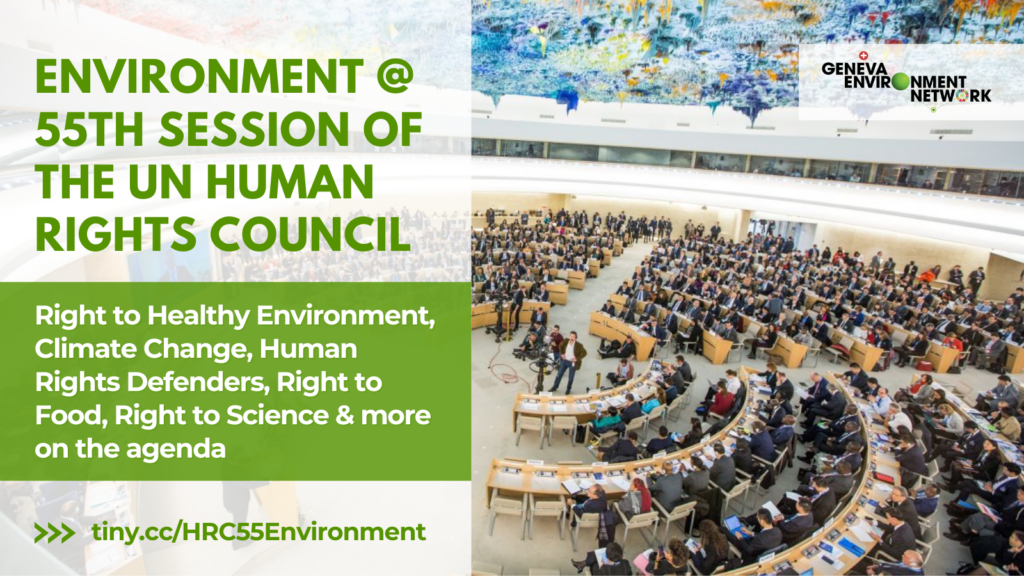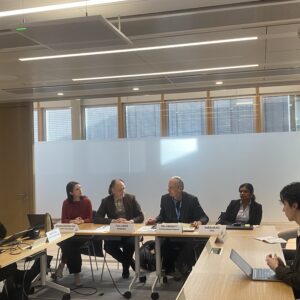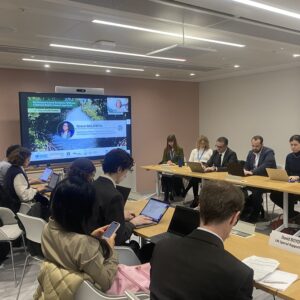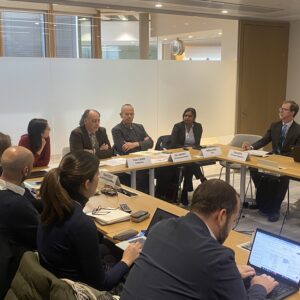Event Conference
No Nature-based Solutions Without a Human Rights-based Approach | Geneva Rights and Environment Talks
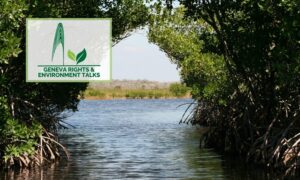
11 Mar 2024
09:45–11:00
Venue: Palais des Nations | H307-1 & Online | Webex
Organization: Special Procedures of the UN Human Rights Council, Geneva Task Force on Human Rights and Biodiversity, Earthjustice, Geneva Environment Network
On the sidelines of the 55th session of the Human Rights Council, the Geneva Rights and Environment Talks aimed to harness the opportunity of this moment of the year to reflect on the challenges posed by the rapid decline of nature and biodiversity, and on how Geneva contributes to bringing together the actors working towards ensuring the right to a clean, healthy, and sustainable environment is upheld for all.
About this Session
Nature is fundamental to the well-being of all people. Healthy ecosystems underpin diverse livelihoods and economies, cultures, and the enjoyment of a wide range of human rights, as framed by the right to a clean, healthy and sustainable environment.
The UN Special Rapporteur on human rights and the environment, David Boyd, emphasized in his 2020 report to the UN General Assembly, “All human rights ultimately depend on a healthy biosphere.” The triple planetary crisis of climate change, biodiversity loss, and pollution caused by human activities impacts ecosystems, even leading to possible collapses, affecting access to clean air to breathe, safe water to drink or nutritious food to eat.
Nature-based solutions (NbS) have been recognized in various international bodies and frameworks as a way to tackle the environmental emergencies that we face today:
- The concept of nature-based solutions is rooted in the Convention on Biological Diversity (CBD)’s Ecosystem Approach, endorsed at its 5th Conference of the Parties (COP 5) in 2000 in Nairobi, Kenya. It is the primary framework for action under the convention, integrating the management of land, water, and living resources.
- Nature-based solutions aimed at addressing the societal challenges related to ecosystems, such as ensuring food security, water security, social and economic development, and human health, as defined by Resolution 069, adopted at the 2016 World Conservation Congress in Hawaï (USA): NbS are “actions to protect, sustainably manage, and restore natural or modified ecosystems, that address societal challenges effectively and adaptively, simultaneously providing human well- being and biodiversity benefits.”
- In 2021, IUCN adopted its Global Standard for NbS at its World Conservation Congress in Marseille, France (by 128 State and subnational members combined) to provide a common basis of understanding for NbS and a robust global operational framework.
- In 2022, the 5th United Nations Environment Assembly (UNEA-5) adopted Resolution 5/5 on “Nature-based solutions for supporting sustainable development” to bring NbS in line with the United Nations 2030 agenda for sustainable development.
- The NbS concept is also integrated into several multilateral agreements and conventions, such as the CBD, in particular the Kunming-Montreal Global Biodiversity Framework’s Targets 8 and 11, UNFCCC, UNCCD, and the Wetlands Convention, and is becoming a major criterion for funding and investments.
- From 26 February to 1 March 2024, the 6th United Nations Environment Assembly (UNEA-6) is also considering a further resolution on the matter.
With such a growing recognition, ensuring a human rights-based approach in nature-based solutions is a necessity to guarantee coherence in the protection of human rights and the health of the biosphere and in the implementation of the right to a clean, healthy and sustainable environment.
Experts in this session reflected on these recent developments, including the recent UNEA-6 outcomes, as well as on existing human rights obligations of States, businesses, and organizations when it comes to the implementation of nature-based solutions.
About the Geneva Rights and Environment Talks
In the face of the three interrelated environmental crises — climate change, loss of biodiversity, and pollution — the recognition of the right to a clean, healthy, and sustainable environment by the UN Human Rights Council and the UN General Assembly is an important milestone that puts environmental issues at the forefront of the human rights agenda.
The Special Rapporteur on human rights and the environment reports to the Human Rights Council during its March session on issues related to his mandate. The Geneva Rights and Environment Talks aim to harness the opportunity of this moment of the year to reflect on the challenges posed by the rapid decline of nature and biodiversity and the intertwined human rights implications. The talks are also an opportunity to discuss how Geneva contributes to bringing together the actors working towards ensuring the right to a clean, healthy, and sustainable environment is upheld for all.
Speakers
By order of intervention.

Otto SIMONETT
Director, Zoï Environment Network

Mirna Ines FERNANDEZ
Researcher, Third World Network

Grace BALAWAG
Deputy Coordinator, Tebtebba & Co-chair of the Indigenous Peoples Caucus of the UNFCCC

Ashanapuri HERTZ
Programme Officer, Swedbio

Alexandra Masako GOOSSENS-ISHII
Representative to the UN & Programme Coordinator, Climate & Environment Advocacy, Soka Gakkai International

Radhika MURTI
Director, Centre for Society and Governance, IUCN
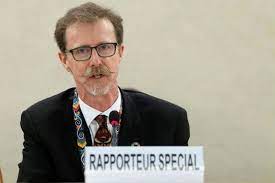
David BOYD
UN Special Rapporteur on human rights and environment
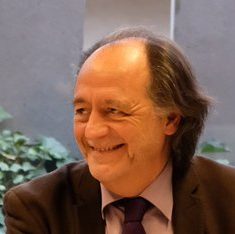
Yves LADOR
Representative of Earthjustice to the United Nations in Geneva | Moderator
Highlights
Video
Live on Facebook
Environment @ HRC55
The 55th regular session of the Human Rights Council (HRC55) is taking place in Geneva and online from 26 February to 5 April 2024. This regularly updated page highlights the environmental-related activities of this session.



